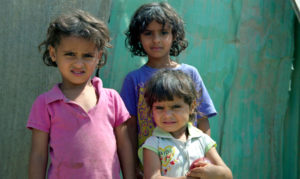
Strengthening the Internal Market
Project is comprised of six components, as follows: Component 1: Improving the strategic, legislative and institutional framework in area of Free Movement of Goods Component 2: Improving the strategic, legislative and institutional framework in area of Free Movement of Services. Component 3: Improving the legislative alignment with the

Increasing Attractiveness, Inclusiveness and Relevance of VET and Adult Education
The overall objective is to improve skill matches of youth and adults in line with labour market needs by increasing access to quality vocational education, training and adult education. The project supports the Ministry of Education and Science of the Republic of Nort Macedonia and related national educational

Support for Policy Reform Accession and Effectiveness (SUPRAE)
In March 2020, North Macedonia began accession negotiations with the EU. However, the country still needs to meet EU standards, enact essential reforms, and institutional capacities to comply with the acquis and clusters. The project’s goal is to assist North Macedonia in its EU accession by increasing strategic

Support to the EU Integration Process of Albania
The project aims to assist the Government of Albania to strengthen the EU integration process in line with the priorities of Stabilisation and Association Agreement and accession negotiation processes by: Supporting effective alignment of national legislation with the EU acquis and its implementation. Further strengthening the capacities of

Technical Assistance for the Sector Reform Contract EU for Youth
The project’s overall objective is to improve young people’s vocational qualifications, skills, and preparedness to enter the labour market and better implement the Youth Guarantee scheme in the Republic of North Macedonia.

Reinforcement of the National Social Security Fund (NSSF) in Lebanon
In Lebanon, there is no comprehensive national policy to fight poverty and a particular, effective social security system for poor people. Without improvements, Lebanon cannot hope to move towards realistically integrated and adequate social protection interventions. Thus, the project aimed to contribute to improving the quality and coverage

